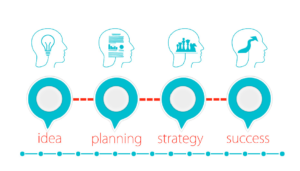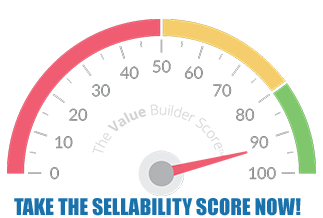by Peter C. King, VR Business Brokers/Mergers & Acquisitions, CEO
 In a perfect world, business owners sell their companies when banks are anxious to lend, the economy is strong, their industry is booming and the business is enjoying record profitability, with the future looking even brighter. Naturally, a perfect convergence of all these variables would enable you to maximize the value of your business allowing you to sell it at the highest price and on the best terms.
In a perfect world, business owners sell their companies when banks are anxious to lend, the economy is strong, their industry is booming and the business is enjoying record profitability, with the future looking even brighter. Naturally, a perfect convergence of all these variables would enable you to maximize the value of your business allowing you to sell it at the highest price and on the best terms.
But most business owners don’t sell when market conditions are perfect. Instead, they make the decision for more personal reasons, such as retirement or to free up cash to pursue other investment opportunities. Unfortunately, many businesses are sold when the owner dies unexpectedly or is otherwise unable to run the business. These unplanned events increase the chance that the business will realize a lower selling price than it would in better circumstances.
QUESTIONS TO ASK
Before you make the decision to sell, you need to ask yourself several questions. First, how motivated are you to sell? Selling a business is an arduous process that can take a year or more from the initial valuation to finding a buyer to finalizing the deal.
Second, have you adequately prepared your business to be sold? Most experts agree that owners should plan for the sale of their business at least three years in advance. You may even want to plan for an eventual sale as you’re still establishing and building your business.
But even if you have no current plans to sell, managing your company as if it will be sold is likely to result in a more efficient, financially viable business. For example, your business plan whether a formal or informal document should evaluate growth opportunities, market position, and business goals, and explain how progress in reaching these goals will be measured. Not only is your business plan an important tool in unlocking the current value in your company, but it also serves as initial prospectus for prospective buyers.
INTERNAL AND EXTERNAL FACTORS
Keeping an eye on economic cycles and how they affect the merger and acquisition market is important. The market for privately owned companies can be just cyclical as that for publicly traded companies. Economic recessions, for example, generally mean there are fewer buyers. General economic weakness can also result in a drop in your business’s profitability and a perception among buyers that your business is a risky acquisition.
Also be aware of your business’s growth cycle and plan to sell when sales growth has reached a peak. Of course, this isn’t always easy to calculate, and typically requires the help of outside advisors. Further, you are better positioned to sell if your company boasts valuable patents, brands, proprietary products or a lucrative market niche.
Businesses are typically valued on a multiple of earnings. Your business’s earnings, therefore, must be transparent and documented. Many deals are funded with bank debt, and most lenders won’t finance a transaction without stable cash flows that can be verified through solid financial statements. Buyers also usually look for breadth of management because it reduces the company’s dependence on the departing owner and allows the buyer to learn the business from an experienced management team.
There are also a number of relatively minor things you can do to enhance the perceived value of your company and make it more attractive to purchasers. Cleaning up and organizing the office, factory and warehouse space is an inexpensive enhancement. Repairing or replacing equipment may cost a bit more, but will help you attract buyers seeking a turnkey operation. Finally, consider disposing of unproductive assets or old inventory that buyers don’t want to be burdened with.
MAXIMIZING YOUR SELLING PRICE
Selling your business can be time-consuming a complex process, but you’re likely to maximize your selling price by planning the event well in advance and by engaging qualified advisors to assist you. While a deal can often be put together quickly, maximizing value means that selling your business may take time. Remember, you don’t want to feel pressured to take the first offer, or to accept terms that are less favorable.
Is now the time to consider selling your business?
Complete the “Value Builder” questionnaire today in just 13 minutes and we’ll send you a 27-page custom report assessing how well your business is positioned for selling. Take the test now:




